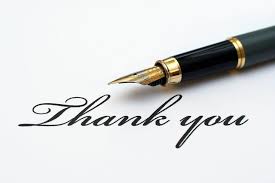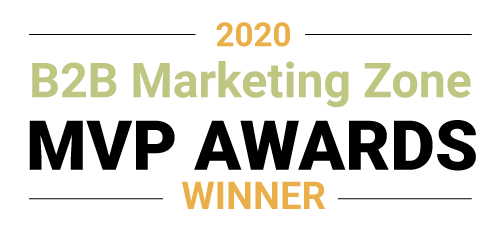
In the business world, just about everything you do can influence your success. The way you dress. The language you use. Personal grooming habits. Your manners. Sense of humor. Writing ability. It’s a very long list.
Your career path is loaded with opportunities as well as land mines, involving a host of factors that are often totally unrelated to your professional capabilities, and largely associated with your attitude and how you treat others.
In large measure, your success is based on the ability to recognize and demonstrate appreciation for the assistance and kindness of other people, who may be inside and outside of your company. “Thank you” can be the two most powerful words in your career.
A few years ago, a former business associate asked if I would set up a “networking interview” for his best friend’s daughter, who was a recent college graduate exploring career opportunities in marketing. I arranged for the young woman to meet with a very senior marketing executive at a well-known firm, who as a favor to me spent considerable time counseling the college grad. The Cliff Notes version of this incident ends with neither my friend thanking me for arranging the interview, nor the young woman thanking the senior marketing executive for her time. I felt abused by my friend’s lack of courtesy to me, as well as embarrassment by the young woman’s failure to thank the senior executive who did me the favor of seeing her. It was a double whammy that left me wondering why I bothered to help.
Over the course of my career, I’ve been both pleased and disappointed by the ability and inability of people – well known and hardly known – to thank me for a kindness. And in all cases, perhaps unfairly, I’ve drawn long-lasting conclusions about their professionalism and character as a result of their behavior.
Although I’m confident that I’ve also failed on occasion to say “thank you” to someone deserving of my appreciation, the failure of others to acknowledge a favor has made me much more aware of the importance of the gesture. In my ongoing quest to make saying “thank you” an ingrained habit, here are a few of the things I’ve learned:
Thank people for everything: Most importantly, thank people for their time, even if it’s a 5-minute conversation. I’ve never understood corporate managers who consciously withhold praise and thanks from people, as part of some strange Pavlovian approach to motivation and performance. People need to know that they are valued, and when it comes to thanking them, “less is more” makes little sense. If your appreciation is appropriate, genuine and frequently expressed, then people at every level of the corporate ladder – from the kid in the mail room, to the bigwig in the corner office – will be much more likely to view you as someone they want to help in the future.
It’s never too late to thank someone: Ideally, an immediate response has the greatest impact, because it shows you’re truly engaged in the relationship and focused on needs other than your own. But we all have busy lives, and it’s very easy to overlook gestures that are deserving of a “thank you.” Compounding the oversight, if some time has passed since the gesture, we’re often too embarrassed to reach out to thank the individual, fearing it will reflect poorly on our manners. The opposite is true. Even if your “thank you” has been overdue by weeks, months or years…it may have greater impact on the recipient, because it demonstrates that their kindness was not quickly forgotten. (Make sure you apologize for the delayed response, and skip the excuses.)
How you thank people counts a lot: Common sense dictates whether your “thank you” is performed in real-time, after the fact, or both. Aside from timing, the method you use to thank someone is very important. “Normal course” appreciation protocol (not involving gifts, tickets to events, etc.) usually is accomplished by voice, email or snail mail; which is often the rank order of the thank you’s perceived value.
Your “thank you” method can be more important than the message itself. One very large law firm in New Jersey, for example, ranks its job candidates this way, following their interview: No written “thank you” = Eliminated as Candidate. An Emailed “thank you” note = Considered for Position. A hand-written, mailed “thank you” note = Preferred for Position. This successful law firm understands that lots of people can do well in law school, but very few people have the empathy, social skills and professionalism – demonstrated by their taking the time that’s required to write and mail a personalized note – that will resonate with their clients and reflect well on the firm’s brand reputation. (Don’t let terrible handwriting preclude you from this opportunity to stand out from the crowd. Either use block printing, or engage the assistance of someone with legible handwriting.)
Very often, it’s the little things in life, and in a business career, that can make an enormous difference. Expressing thanks is a small gesture that always counts, because it’s more than a superficial courtesy. Your ability to say “thank you” reflects an unselfish personal value system, and signals to others that you are someone worth knowing and helping.









Could not agree with this more! I work as an Inbound Marketer and I thank people everyday from a follow on Twitter, to time spent talking on the phone. Showing gratitude will get you far and reflects good character.
Derek, Thanks for taking the time to comment. Looks like we share the same point of view on this topic. Cheers.